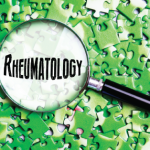References
- Cooper LA, Roter DL, Carson KA, et al. The associations of clinicians’ implicit attitudes about race with medical visit communication and patient ratings of interpersonal care. Am J Public Health. 2012 May;102(5):979–987.
- Elliott AM, Alexander SC, Mescher CA, et al. Differences in physicians’ verbal and nonverbal communication with Black and white patients at the end of life. J Pain Symptom Manage. 2016 Jan;51(1):1–8.
- Simon RJ, Fleiss JL, Gurland BJ, et al. Depression and schizophrenia in hospitalized Black and white mental patients. Arch Gen Psychiatry. 1973 Apr;28(4):509–512.
- Sue DW, Capodilupo CM, Torino GC, et al. Racial microaggressions in everyday life: Implications for clinical practice. Am Psychol. 2007 May–Jun;62(4):271–286.
- Ackerman-Barger K, Jacobs NN, Orozco R, London M. Addressing microaggressions in academic health: A workshop for inclusive excellence. MedEdPORTAL. 2021 Feb 11;17:11103.



